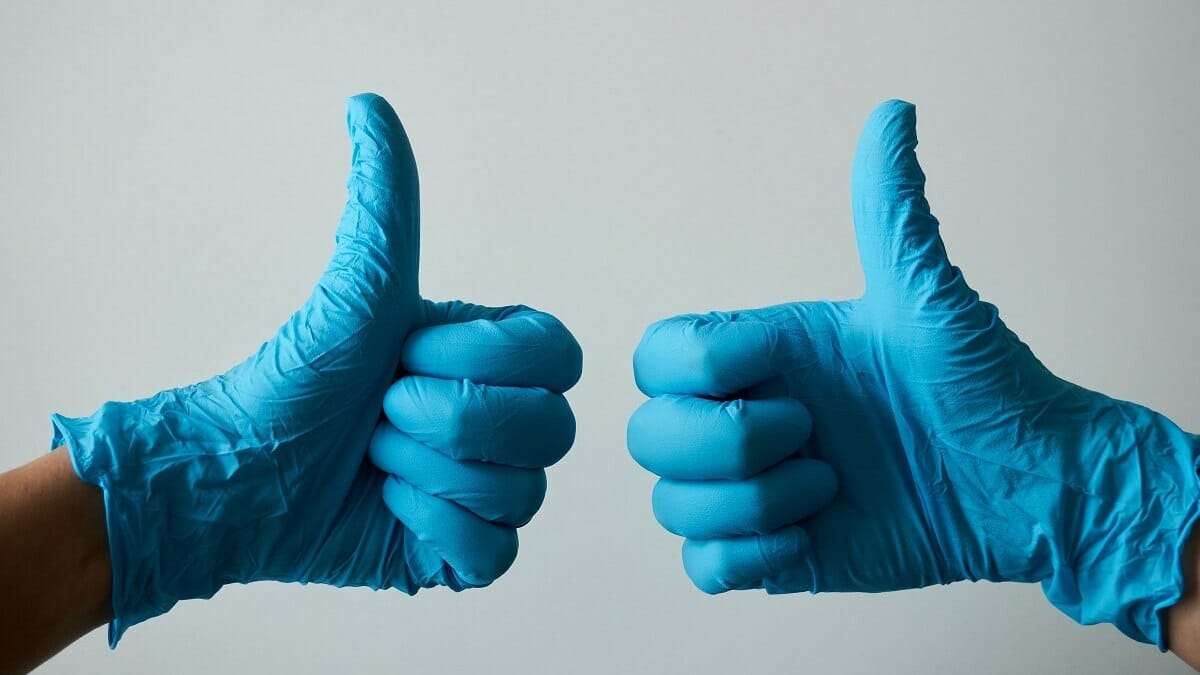Medical School Transfers: Complete Guide

When you begin your medical studies, you are generally expected to attend your chosen university for the entire course. However, situations may emerge in which you may ask yourself, "Can I transfer medical schools?
But don't despair! As writer Roy T. Bennet once said, every challenge brings new growth opportunities. In the past several years, we have assisted thousands of students with successful medical school transfers. However, many students think that transferring is an impossible and complicated process. We won't ask why you want to transfer - maybe you're not happy with your current university or are transferring due to family circumstances, or perhaps you simply need a change of pace. Whatever the case, we've created this guide just for you and any other students who wish to transfer to schools that teach medicine in English in Europe.
Table of Contents
- 1 Can I transfer from one med school to another?
- 2 Is it bad to transfer medical schools?
- 3 How common is transferring medical schools?
- 4 Medical School Transfer Requirements
- 5 GMC Transfer Guidelines to Qualify for UK Medical Practice
- 6 Which medical schools allow transfers?
- 7 Is it possible to transfer to medicine from another course?
- 8 Can I transfer to study medicine in Europe from the UK?
- 9 What is the ECTS (European credits transfer system)?
- 10 What are medical school transfer credits used for?
- 11 International student transfer to medical school with ECTS credits
Can I transfer from one med school to another?
If you've ever wondered whether you can transfer to a different medical school, the short answer is yes - every student can apply for a transfer. However, there are some "buts" to keep in mind. In most cases, you can only transfer to European universities after completing at least year 1. In addition, most institutions only allow transfers at the beginning of each academic year. This means that you will not be able to change universities between semesters. In other words, you might be required to finish your current academic year first before proceeding with your medical school transfer application.
Your current school must provide a transcript of your academic record and a letter of evaluation. If you want to apply for a student transfer, the university will need these documents.
Get free advice from our academic advisors on finding medical schools that currently have open transfer spots:
Check your email to Book a FREE call
with an expert advisor
Look at your promotions/spam folders, just in case.
Is it bad to transfer medical schools?
Absolutely not! The truth is that you should love what you do. As long as you are unhappy with the current teaching system or the environment that you live in, you will perform poorly in your studies.
The goal is to be a fully qualified doctor, which is the key to staying motivated and satisfied. Nobody's life is perfectly static. Sometimes we make mistakes, and sometimes we don't, and life just throws a curveball at us. What matters is how we deal with that and how we move forward.
Sometimes, when you realise that your current school isn't what you expected, forcing yourself to remain in it is the bad option, not transferring. The most important part isn't whether you transfer or not, but that the decision comes from you alone and that you're confident it's the right one.
On occasions, it is not the university that you are unsatisfied with but rather the location. Transferring to a culture-rich country like the Czech Republic or a region known for its beautiful nature, like the Caribbean, could bring back your motivation to study and your passion for life.
How common is transferring medical schools?
Believe it or not, many students transfer to medical schools in Europe. Daily, our expert advisors get asked questions like:
- How can I transfer to medicine after 1st year?
- How do I transfer to a European medical university?
- When should I apply to transfer to a university?
And yes, we can help hundreds of students who wish to transfer every month! Don't let transfers intimidate you - with our help, they may be much easier than you think.
Medical School Transfer Requirements
The general requirements are:
- Completion of at least one academic year (in most cases)
- Academic transcript
GMC Transfer Guidelines to Qualify for UK Medical Practice
If you're thinking about changing medical schools, it's important to understand how this impacts your future work in the UK. To work there after graduating, you must be registered with the GMC, the organisation in charge of the UK's medical register.
Here's what you need to know about the GMC's rules for recognising your degree:
- Your transfer should be to a medical school that offers joint degrees or is a branch of your original university.
- You should transfer for a good reason, like being unable to complete your degree at your first medical school, not because you failed or were dismissed.
- All your study credits must be from medical courses, not from other fields like nursing or biomedicine. This means that you need to go through a complete medicine course to ensure that your education meets GMC's full standards.
- The medical school where your credits come from must be approved by the GMC.
If your degree includes credits from schools the GMC approves, they'll check to make sure your education fits the criteria needed to work in the UK.
To learn more about how to get your degree recognised by the GMC, check out our comprehensive guide: Overseas Medical Qualifications Recognised in the UK: GMC Approval Guide
Which medical schools allow transfers?
There are dozens of schools our student advisors can recommend to you that allow for transfers, so even if you transferred into them partway through, you could still practise medicine or dentistry anywhere in the world!
Some universities allow for medicine transfers only, which means you can only transfer into their MD programme rather than dentistry or veterinary medicine. One example is the Trakia Medical University in Bulgaria, located in Stara Zagora. If you have an "old soul", you'll be right at home in one of the oldest cities in Europe (with roots tracing back to the 4th century BC). The university, however, is relatively modern in its faculties and education level.
And if you'd rather be a bit further west, the Medical University of Silesia in Poland could be just what you need! While, once again, you can only transfer into its medical program rather than dentistry or pharmacy (which are reserved for first-year students only), there's no need to worry. Since its inception, the university has educated more than 50,000 medical specialists, so you'll be in very good hands!
If you'd like to transfer into dentistry and not just medicine, you don't need to worry; there are plenty of options! For example, the European University of Tbilisi in Georgia doesn't discriminate on whether you wish to study dentistry or medicine. They're more than happy to have you on their programmes! Once you transfer, you'll eventually also be able to practise at the famous Jo Ann Hospital in Tbilisi, which is owned by the university.
Petre Shotadze Tbilisi Medical Academy is another higher institution in Georgia that allows you to transfer and continue to study medicine in English and earn an internationally recognised medical degree.
If you would like to see a comprehensive list of medical schools that accept international transfer students, you can check out our blog on How To Transfer Between Medical Schools.
Reserve Your Spot for Our Webinar
How to get accepted for a medical school transfer
Is it possible to transfer to medicine from another course?
Yes, it is possible, but with a few caveats. Obviously, you need to be transferring from a course related to medicine. You can't go from an English major to medicine, for example - so in those cases, if you've found your true calling too late, you might have a bit more work to do to pursue it.
However, if you wish to transfer from biomedical science to medicine, that's ideal! The same goes for pharmacy, medicinal chemistry, human biology, and other programmes adjacent to medicine. In fact, not only will you not face many difficulties with your transfer, but many universities will fast-track your interview, so you can get settled faster than you did in the first year. They know you'd rather not deal with the admissions process again and are happy to accommodate!
Can I transfer to study medicine in Europe from the UK?
Absolutely! There are many reasons why a UK student would consider medical schools that accept transfers in Europe - significantly lower tuition fees and lower costs of living, all while providing you with an adventure and, more importantly, a degree that will be recognised back home. What's not to love?
As such, quite a lot of students who studied for a year or two in the UK ultimately decide that, instead of dealing with extravagant student loans, it's best to just transfer to a European university and complete their education there. When comparing it to transferring from one university in the UK to another, the process is only different in terms of the bureaucracy involved (what documents, notarised and translated texts are involved and where they're submitted), not in its practical application of what it means to you as a student to transfer. The same rules of transferring from a related field after your 1st year apply no matter where the universities are located.
What is the ECTS (European credits transfer system)?
ECTS, also known as the European Credit Transfer and Accumulation System, was initially designed to help ERASMUS students in their exchange programme. Nowadays, it is widely used throughout Europe for Bachelor's, Master's, and Doctorate degrees.
ECTS has three primary functionalities:
- Switching between universities
- International education (e.g. an exchange semester at a different university)
- Applying for advanced study (such as a Master's or PhD)
Students studying in EU countries can go abroad and obtain a globally recognised degree.
For example:
You take a joint degree or study a semester abroad or even an Erasmus study programme. Your home university will be able to keep track of the number of hours you've studied, thanks to the "credit transfer" system.
Paperwork is another thing that's simplified, as it's easier to estimate the complexity of the class or thesis based on the number of credits offered upon completion. This puts all of the students, be they international or local, on the same level.


What are medical school transfer credits used for?
Simply said, this system is used to help students transfer from one medical school to another. ECTS helps equalise the credits you will achieve through your education and makes it comparable across йъEU countries.
When you complete a course or module, you will be awarded ECTS credits. Every credit point you receive will represent the amount of work you have achieved in that period of time. For example, completing 1 year of studies will grant you 60 ECTS credits, a 6-year degree in medicine will earn you 360 ECTS credits, etc.
Bear in mind that even though, theoretically, the credits represent the amount of time you've invested in a course, many countries have different measurement metrics for the number of hours spent studying.
For example:
1 ECTS credit in Milan, Italy, is equivalent to 25 hours of study, whereas 1 ECTS credit in Romania equals 30 study hours.
International student transfer to medical school with ECTS credits
During your studies, you achieve credits for each module. The credits you have earned at your previous university will be recognised. All of the transcripts will be assessed. This will allow you to enter a higher study year at another university. You can continue your medical education without losing even a day!
However, this can only happen if the materials covered in the medicine or dentistry course are similar or the same as the course structure of the destination university. Most medical schools choose pre-clinical studies such as Biochemistry and Anatomy in the first three years.
Therefore, transferring to another school isn't an issue since much of the content offered in the first few years has already been covered and achieved via the credits system. ECTS gives universities the confidence to put students in a higher year than if they applied to start the programme from the first year.
The ECTS credits system ensures that students who wonder, "Can you transfer from medical schools?" have a clear answer—of course you can. Keep in mind that every institution has its requirements regarding transferring in and out of the school. Some have more rules and regulations, while others ask for more stipulations to be upheld before the student can even transfer.
Book a FREE call with one of our advisors for more information about medical university transfer. While the information provided here is accurate as of this date, some changes can occur, and it is best to speak with an expert advisor to better understand the process.
14 comments on “Medical School Transfers: Complete Guide”
Leave a Reply to Medlink Students Cancel reply


About Medlink Students
Leading international recruitment company for medical students in Europe. British Council Certified Agents. 10+ years of experience and more than 10,000 students advised.









Can I transfer from Myanmar medical university to European medical universities?
Hi Nay, yes you can! Would you like a free consultation? Please contact us: https://www.medlinkstudents.com/apply/
Hi, do you offer advise on moving to Australia? I’ve completed 1st year.
Hey Anna! Thank you for contacting us. This is an excellent question that is best answered in person after considering your situation. You can do that for free here https://www.medlinkstudents.com/apply/. It takes only 10 seconds and one of our advisors will contact you as soon as possible.
Possible transfer (from Slovakia)
Dear sir or madam,
I’m currently an English speaking student at the Slovak Medical University in Bratislava, Slovakia.
At the moment I should be in the 5th year, but because of the subject pharmacology I probably can’t continue my studies in the 5th year if I won’t pass it.
My question is now if there are possibilities to transfer to another country, for example to Hungary,Czech Republic, Romania etc. if i won’t pass my studies here?
Best regards
Arian Bytyqi
Student of SZU Bratislava
Hey! Thank you for contacting us. This is an excellent question that is best answered in person after considering your situation. You can do that for free here https://www.medlinkstudents.com/apply/. It takes only 10 seconds, and one of our advisors will contact you as soon as possible.
Hi, is it possible to transfer from Nigeria to an European university (going to my 4th year)
Hey! Thank you for contacting us. This is an excellent question that is best answered in person after considering your situation. You can do that for free here https://www.medlinkstudents.com/apply/. It takes only 10 seconds, and one of our advisors will contact you as soon as possible.
Hi sir
I've completed my first year of medicine from kyrgyzstan and i want to take transfer to Australia. Is it possible?
Hey! Thank you for contacting us. This is an excellent question that is best answered in person by one of our expert advisors. You can submit an application for free here https://www.medlinkstudents.com/apply/. It only takes 10 seconds, and one of our advisors will contact you as soon as possible.
Hi can I transfer from Mauritius back to a south african university to continue medicine
Hey! Thank you for contacting us. This is an excellent question that is best answered in person by one of our expert advisors. You can submit an application for free here https://www.medlinkstudents.com/apply/. It only takes 10 seconds, and one of our advisors will contact you as soon as possible.
Can I transfer from Belfast to Cardiff medical school based on health issues. I completed year 1 in top quarter
Hey! Thank you for contacting us. This is an excellent question that is best answered in person by one of our expert advisors. You can submit an application for free here https://www.medlinkstudents.com/apply/. It only takes 10 seconds, and one of our advisors will contact you as soon as possible.